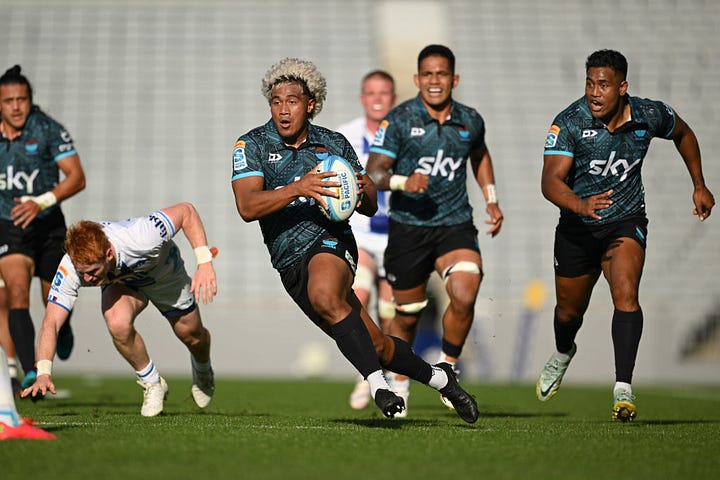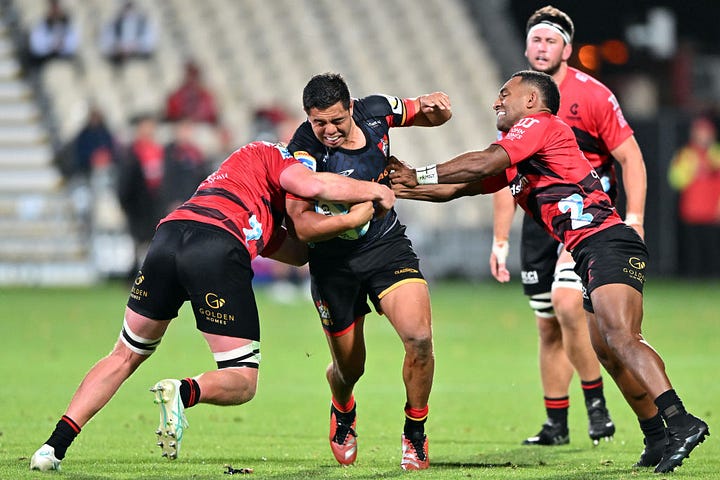Super Rugby looked a gift horse in the mouth
PLUS: RTS and the fullback debate that isn't, drugs in the AFL, and how athletes are speeding up the decline of sports journalism


Who is running Super Rugby?
The question is not even whose nameplate is above the door, but who is making the big decisions? Who is sitting there with a calendar on one side of the desk, a big blank piece of paper on the other and comes up with a schedule like the one thrust upon us over the weekend?
Look at the smorgasbord of big-time sports you had to c…
Keep reading with a 7-day free trial
Subscribe to The Bounce to keep reading this post and get 7 days of free access to the full post archives.



